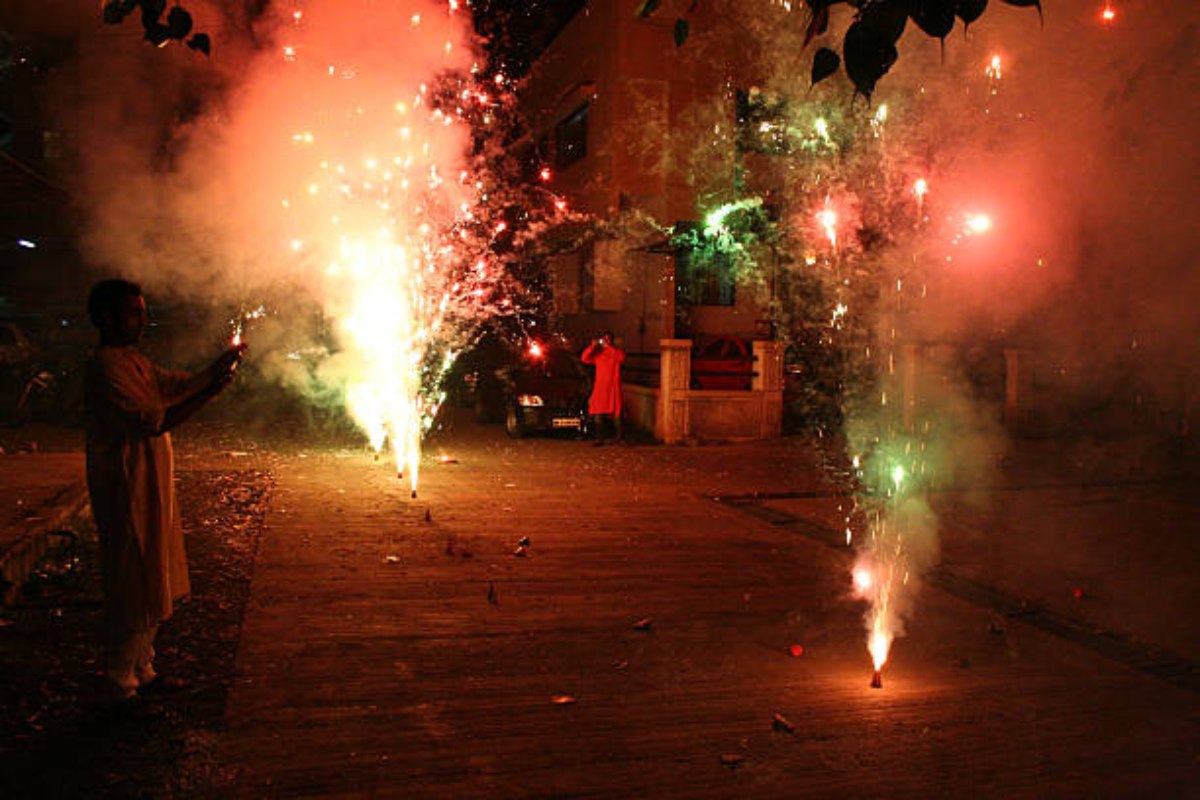The West Bengal Pollution Control Board (WBPCB) has rejected 20 out of 33 firecrackers that were brought for testing at Tala Park. Before selling firecrackers in the market, several firecracker manufacturing unit owners were asked to attend a mandatory test at Tala Park on Saturday. However, manufacturers claimed that a chaotic situation unfolded during the routine testing of fireworks at Tala Park.
The inspection, which usually precedes the start of business, ended up in utter disarray, leaving the authorities puzzled about how to proceed. Out of the 33 fireworks subjected to examination, 20 did not pass the rigorous scrutiny. A senior official of the WBPCB said that requisite equipment was used to test the firecrackers.
Advertisement
A majority of them were in the category of “aerial fireworks,” commonly known as ‘atasbaji,’ leaving only one as a “sound-based firework”. Despite the presence of equipment to measure sound levels, there was no provision for testing smoke emissions, a firecracker manufacturer said. The testing procedures raised eyebrows, particularly among firecracker vendors who believe it was a humorous oversight by the authorities.
Fireworks testing has been a long-standing tradition under police supervision in the city. The absence of smoke emission testing added to the confusion, another manufacturer said. Even with strict regulation and control over the fireworks industry, the lack of smoke emission checks prompted questions about the effectiveness of the overall process.
Manufacturers alleged that there were no officials from the National Environmental Engineering and Research Institute (NEERI). “They were unable to scan the NEERI QR codes using the police mobile app, leading to the cancellation of the approval for all 20 fireworks,” a manufacturer said. Tension ran high as the police confronted the firecracker vendors, demanding the reprinting of all the necessary documents.
A lengthy discussion ensued between the police and the representatives of the vendors, ultimately leading to an agreement that each firework category would be retested, and individual authorization certificates would be reissued. While the situation eventually reached a resolution, the issue raises questions about the transparency and efficacy of the testing process for fireworks.
It also highlights the need for stricter control and better coordination between the police and the authorities responsible for regulating this industry. A senior official of the WBPCB said, “Everything will be sorted out soon.” As the firecracker business prepares for another season, Kolkata Police’s Deputy Commissioner of Reserve Force, Abhishek Gupta, assured, “When necessary, we will take action, and everyone will comply.”
This incident serves as a reminder of the intricate challenges involved in the fireworks market and the need for better management and regulations.











